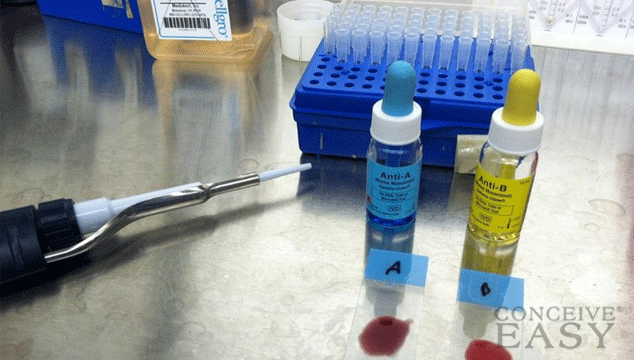Blood Type and Rh Factor are a couple of those terms that we occasionally hear from time to time, but they don’t really have much emphasis or meaning. However, in some pregnancies, blood type and Rh factor are really important things to pay attention to. Read on for more info about this important topic. Claim Your 20 Free Pregnancy Tests – Click Here

Blood type simply refers to the type of blood that is in your body. There are four major blood types. A, B, AB, and O. Proteins that are found on the surface of blood cells are called antigens, and it is these antigens that determine blood type. The Rh Factor is a type of protein that is present on the surface of some red blood cells. People that do NOT have the Rh factor are Rh negative.
Most people who DO have the Rh factor are considered to be Rh positive. Your doctor will give you a simple blood test during your prenatal care to determine your blood type. If your blood contains the Rh antigen, you will be labeled as Rh positive.

Occasionally, problems do arise when a mother is Rh negative and her baby is Rh positive. This happens when the fetus inherits the Rh positive gene from the father and the mother is Rh negative. This means that the mother’s blood and the baby’s blood are not “compatible.” If you are Rh negative, you may develop antibodies to an Rh positive baby.
This means if the baby’s blood mixes with your blood, (totally common during pregnancy/labor/delivery), your body will think that you are allergic to the baby. Your antibodies can then cross the placenta and begin attacking your baby’s blood. Sounds scary, doesn’t it?

If you are Rh negative and your baby is Rh positive, your doctor can give you an injection of Rh immunoglobin (Rhlg), which can prevent your body from thinking you are allergic to your baby’s blood. the Rhlg injection is used sometimes during the end of a woman’s pregnancy to prevent any possible complications from occurring.
It is also sometimes used after a mother gives birth to an Rh positive baby, so the mother’s body doesn’t try to fight off any of the baby’s Rh positive cells that are left over from labor and delivery. If a woman has an abortion, miscarriage, amniocentesis or other invasive procedure, doctors usually recommend an Rhlg injection just to be on the safe side.

If a woman develops antibodies, the injection of Rhlg does not help. If antibodies develop, the mother will have to continue to be checked throughout her pregnancy to make sure the baby is okay. Sometimes the baby will have to be delivered early,and will have to receive a blood transfusion to replace the diseased blood cells with healthy ones. More than 85 percent of the population is Rh positive, so having a problem like this is pretty rare. However, with the technological advances we have today, it is very rarely a problem that can’t be solved by a doctor.










Comments